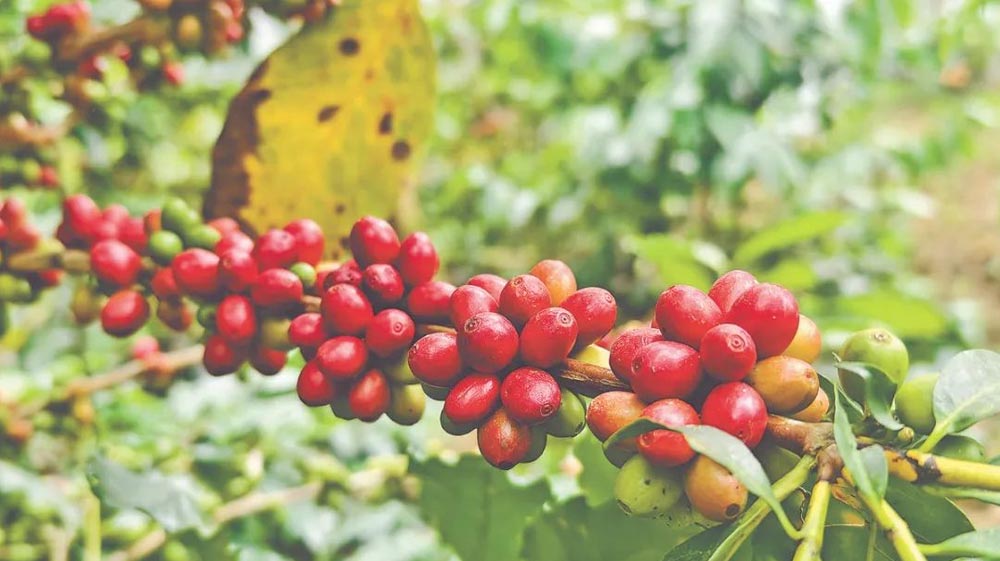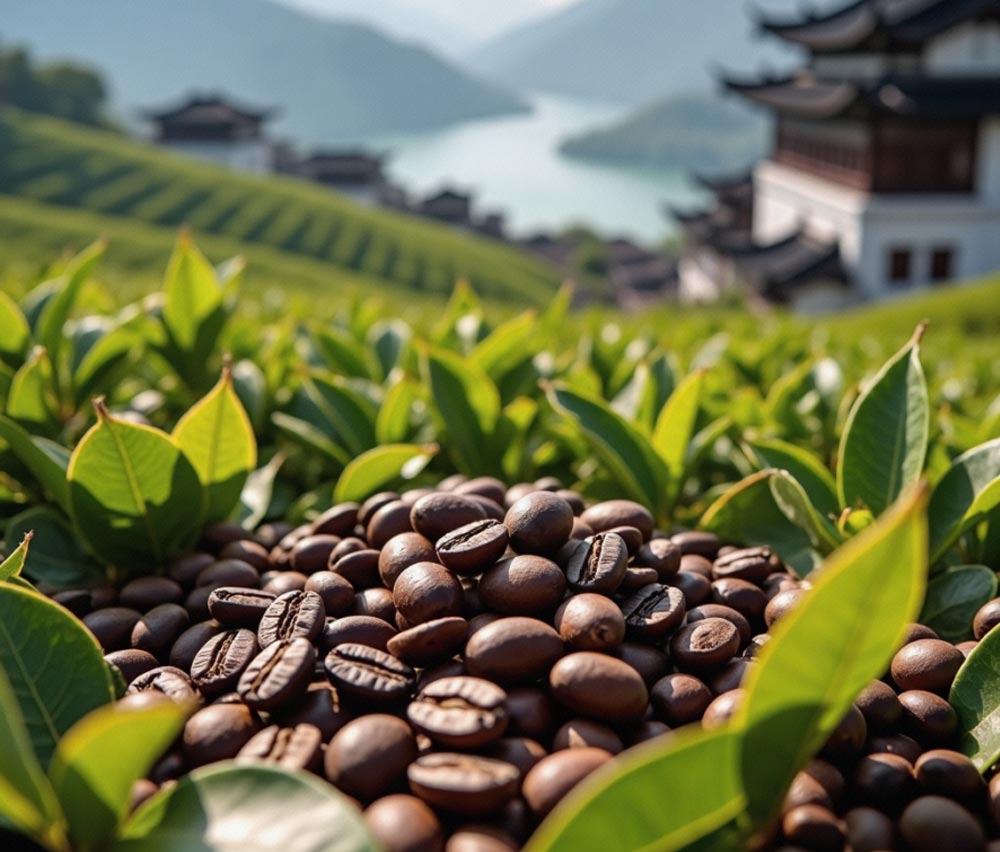On the global coffee map, Yunnan is quietly emerging as a dazzling rising star. As China’s primary coffee-producing region, Yunnan leverages its unique terroir and masterful processing techniques to yield astonishingly high-quality coffee, proving to the world the boundless potential of Chinese coffee.
In 2024, Yunnan's coffee exports reached 32,500 tons, a staggering 358% year-on-year increase, with major markets including Germany, the Netherlands, the United States, and Vietnam.
The China-Europe Railway Express has further accelerated the global reach of Yunnan coffee, enabling European clients to receive their orders within just 15 days after purchase. As a result, "Chinese coffee" is becoming an increasingly prominent player on the world coffee stage.
1. Yunnan: China’s Golden Coffee Belt
Nestled between 21°N and 29°N latitude, Yunnan lies within the global "Golden Belt" for coffee cultivation. Its high altitude, abundant sunshine, significant diurnal temperature variations, and fertile soil create unparalleled natural conditions for coffee growth. Regions like Pu'er, Baoshan, Dehong, and Lincang have emerged as Yunnan’s core coffee-producing areas, where the cultivated Arabica beans are celebrated for their refined flavor profiles and well-balanced acidity.

2. The Flavor Profile of Yunnan Coffee
Yunnan coffee boasts a rich and elegant flavor spectrum, blending classic notes of dark chocolate and nuts with delicate layers of tropical fruit, caramel, and even floral undertones.
Baoshan Small-Grain Coffee: Renowned for its mellow, full-bodied texture and gentle acidity, with distinct nutty and caramel flavors.
Pu’er Coffee: Balanced and smooth, offering a harmonious mix of sweetness and acidity. Some micro-lot varieties exhibit bright citrus or berry-like acidity.
Menglian Coffee: Grown at high altitudes in unique soil conditions, it delivers greater complexity, often with floral aromas and a honey-like sweetness.
3.From Seed to Cup: Yunnan Coffee’s Specialty Revolution
In recent years, Yunnan coffee has achieved remarkable success in international competitions, with many specialty beans even being compared to coffees from traditional producing regions like Colombia and Ethiopia. This global recognition has made coffee enthusiasts worldwide take a fresh look at Chinese coffee.
The journey of Yunnan coffee—from seed to cup—reflects a dedication to craftsmanship at every stage:
Meticulous Farming: Leveraging ideal terroir and sustainable practices
Precision Processing: Employing both traditional and innovative methods
Artisan Roasting: Highlighting the beans' inherent flavor profiles
This commitment to quality has transformed Yunnan into a rising star in the global specialty coffee scene.

4. The Pursuit of Excellence: How Yunnan's Coffee Pros Are Raising the Bar
Yunnan's coffee quality revolution is powered by the relentless efforts of local farmers and professionals. Across the region, estates are adopting precision farming techniques:
Scientific Cultivation
Optimized harvesting schedules, tailored fertilization programs, and eco-friendly pest management
Artisanal Processing
Implementation of varied methods (washed, honey, natural) to accentuate distinctive flavor notes
Direct Trade Partnerships
Growing collaborations between international buyers/local roasters and farmers, ensuring:
✓ Quality consistency
✓ Fair compensation
✓ Traceable supply chains
This professionalization at origin is transforming Yunnan from a commodity producer to a specialty coffee destination.

5.The future of Yunnan coffee
With the rapid growth of China's coffee consumption market, Yunnan coffee is not only popular in China, but also gradually going global.
A report from the International Coffee Organization suggests that China holds significant growth potential in the coffee sector and is becoming more firmly integrated into the global coffee value chain. The country is carving out a unique position for itself in the global coffee industry.
Previously, TIME magazine covered the rise of Yunnan coffee, noting that Pu'er's mild climate is highly suitable for cultivating Arabica coffee trees. Many young Chinese consumers are shifting from traditional tea to coffee, and growers in Pu'er are adapting to meet this growing demand.
The British magazine The Economist reported that China's coffee industry continues to innovate, with companies striving to cater to consumer tastes. One notable innovation is "tea coffee"—a fusion of tea and coffee. For example, Luckin Coffee has gained popularity with products like Jasmine Latte and Oolong Latte, blending traditional tea flavors with coffee

If you haven't tried Yunnan coffee yet, why not try a cup of premium beans from Pu'er or Baoshan to experience the flavor surprise from the Chinese land. Yunnan coffee is not just a drink, but also the pride of the quality of Chinese coffee.

Contact: Ada Xing
Phone: +86-17749792298
E-mail: adaxing@hepacking.com
Whatsapp:+86-17749792298
Add: Room 1, D8 Workshop, Standardization factory, Shuanghe Village, Xiangyang Town, Xuanzhou District, Xuancheng City, Anhui Province
We chat
